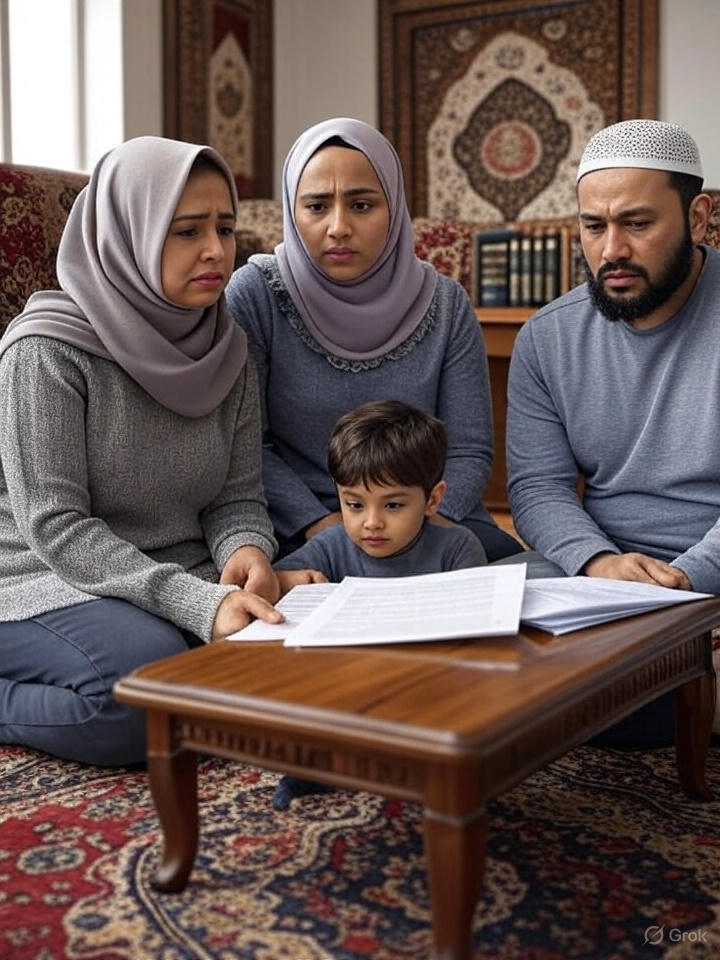On 30th June 2025, the Supreme Court of Kenya delivered a landmark judgment in Fatuma Athman Abud Faraj v. Rose Faith Mwawasi & 2 Others (Petition E035 of 2023) [2025] KESC 48 (KLR), addressing the constitutional question of whether children born out of wedlock can inherit from their Muslim father’s estate under Islamic law. This alert outlines the decision’s key findings, legal implications, and practical considerations for stakeholders in inheritance and succession matters.
Background
The dispute concerned the estate of Salim Juma Hakeem Kitendo, who died intestate on February 23, 2015, in Tanzania. His estate included significant assets such as an apartment, 10 houses, two parcels of land, a business in Mtwapa, two fuel stations, two motor vehicles, and funds in eight bank accounts. The petitioner, Fatuma Athman Abud Faraj, claimed to be the deceased’s lawful wife and filed a succession case in the Kadhi’s Court, naming herself and her four children as beneficiaries. Concurrently, the 1st and 2nd respondents, Rose Faith Mwawasi (claiming to be a widow) and Judith Malele Mwawasi (sister-in-law), petitioned the High Court in Mombasa (Succession Cause No. 200 of 2015) for letters of administration, listing Ms. Mwawasi and her four children as beneficiaries. The 3rd respondent, Marlin Coram Pownall, also claimed to be a wife and sought a share for herself and her child.
The High Court ruled in favour of Ms. Mwawasi and her children, a decision upheld by the Court of Appeal on 10th November 2023, which found no rational basis for distinguishing between children born in or out of wedlock for inheritance purposes under Islamic law. Ms. Faraj appealed to the Supreme Court, arguing that excluding children born out of wedlock aligns with Islamic law and is protected under Article 24(4) of the Constitution, which allows qualifications to equality rights for Muslim personal law matters.
The Supreme Court’s Judgment
The Supreme Court, in a unanimous decision, held that excluding children born out of wedlock from inheriting their Muslim father’s estate constitutes unfair and unjustified discrimination, violating Article 27 of the Constitution, which guarantees equality and non-discrimination. The Court found that such exclusion lacks a rational basis and contravenes constitutional principles, despite Article 24(4)’s provisions. Additionally, the Court ruled that children treated as dependents by the deceased, even if paternity is disputed, are entitled to inherit as beneficiaries or dependents. The Court declared Ms. Pownall’s marriage to the deceased null due to her undissolved prior marriage but upheld that her child and Ms. Mwawasi’s children were entitled to inherit from the estate.
Legal Implications
This landmark judgment has far-reaching implications for Islamic succession law in Kenya:
- Non-Discrimination in Inheritance: The decision overturns the traditional Islamic law practice of barring children born out of wedlock from inheritance, aligning succession with constitutional equality principles.
- Dependency Over Paternity: The Court prioritized dependency over strict paternity, expanding the scope of who qualifies as a beneficiary in intestate succession even under Islamic law, a similar position taken by the Law of Succession Act 1981.
- Limits of Article 24(4): The judgment clarifies that exemptions under Article 24(4) for Muslim personal law must not violate fundamental constitutional rights, such as equality.
- Judicial Precedent: The judgment sets a precedent for Kadhi’s Courts and secular courts handling Muslim succession disputes, promoting uniformity in inheritance rights.
Practical Considerations
For clients navigating succession matters involving Muslim estates:
- Review Beneficiary Claims: Ensure all children, regardless of birth status, are considered in estate distribution to comply with the judgment.
- Legal Documentation: Verify the validity of marriages and dependency claims, as the Court’s stance on null marriages (e.g., Ms. Pownall’s) may affect spousal claims.
- Consult Experts: Engage legal counsel familiar with both Islamic law and constitutional law to address potential conflicts in succession cases.
- Monitor Kadhi’s Court Practices: Kadhi’s Courts must now align their judgments with this precedent, which may prompt updates to existing succession plans.
Disclaimer: This client alert is for informational purposes only and does not constitute legal advice. Please consult qualified legal counsel for advice specific to your circumstances.





